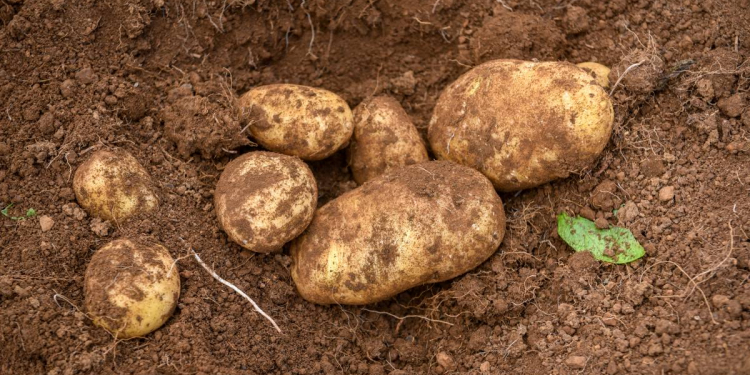It is not for nothing that Germans are also called potatoes in slang. The hunger for the tasty tuber is great in this country. But it is becoming increasingly difficult for potato farmers to ensure the supply of locally produced products.
The potato industry announced on Tuesday that the use of pesticides, which is limited by politics, deprives farmers of the ability to take action against harmful insects or fungi.
Conventional producers and organic farms are faced with the same challenge: The larva of a click beetle, popularly known as wireworm, has spread widely in Baden-Württemberg and perforates the potatoes in the ground. Effective antidotes are banned in Germany, but not in Austria, France and the Netherlands.
“We need a uniform plant protection regulation in Europe and the same standards for non-European goods,” demands Mark Mitschke from the potato growing advisory service. The distortions of competition to the detriment of German potato farmers should come to an end.
In addition to the advisory service in Heilbronn, the Baden-Württemberg growers’ association for early and late potatoes from St. Leon-Rot (Rhein-Neckar district) and several trading houses are sounding the alarm. A fungus called Rhizoctonia also leads to massive impairment of potato quality. Potatoes with encrustations and holes centimeter deep are no longer for sale, explained Mitschke. The only antidotes threatened to lose approval.
In Baden-Württemberg, potatoes are currently being grown on around 5,500 hectares, primarily in the Heilbronn-Ludwigsburg, Ulm and Hartheim / Bad Krozingen regions in southern Baden. With an annual per capita consumption of around 55 kilos per year and a yield of around 38 tons per hectare, the amount of tubers produced in the country is now far not enough for the more than eleven million inhabitants.
The forced renouncement of protection of the potato will widen the gap in the supply of domestic goods in the southwest trade, so the branch. Result: Potatoes would ultimately have to be imported from all over Germany, Europe or North Africa – with all the disadvantages for the climate and the environment. In the northern German growing areas, the heat-loving pests are less common than in the south of Germany, says Mitschke. “But it is only a matter of time before the problems also reach the north.”
Politicians must show alternatives to contain the pests. If this is not possible in the short term, the existing active ingredients would have to be retained until other solutions are available. It should be borne in mind, according to Mitschke, that the development of a plant protection product takes around ten years.





